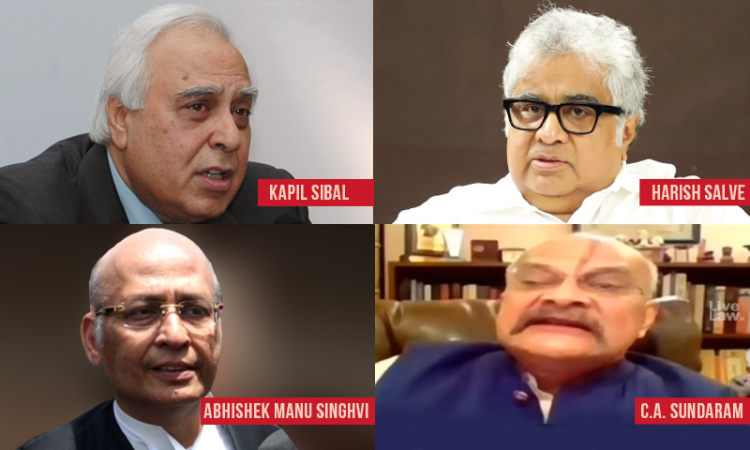'Rule Of Noise Has Replaced Rule Of Law': Senior Advocates Discuss Problems Of Media Trial
LIVELAW NEWS NETWORK
13 Sept 2020 1:00 PM IST

Next Story
13 Sept 2020 1:00 PM IST
Senior Advocates Kapil Sibal, Harish Salve, Dr Abhishek Manu Singhvi and C Aryama Sundaram discussed the problems on 'media trial' in a virtual debate hosted by NewsX on the topic 'pros and cons of media trial' as part of Ram Jethmalani Memorial Lecture.The comments of the senior lawyers assumed relevance in the context of the coverage of the death of Bollywood actor Sushant Singh Rajput,...
